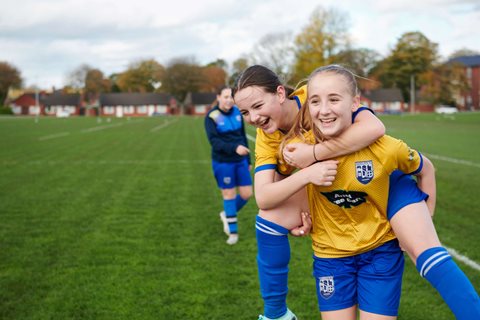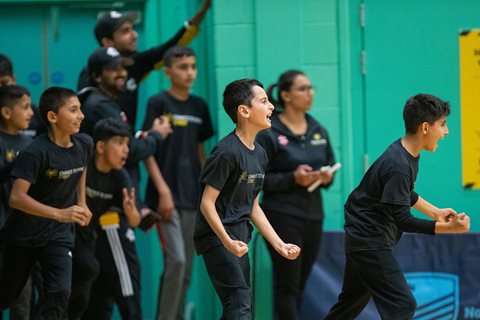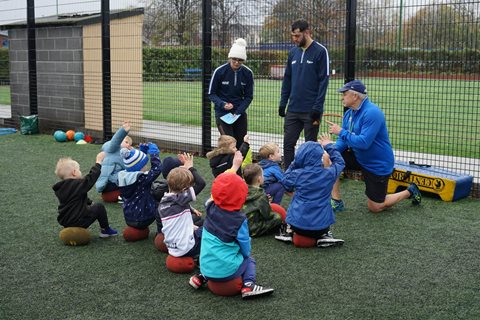Our cookies
We use essential cookies to make our website work smoothly for you. To make sure we're always improving, we'd like to use analytics to track how people use the site. We won't set non-essential cookies unless you give us permission. You can find more information about all the cookies we use in our Privacy and Cookie Policy.
Some cookies are a must for our website to function properly. If you turn off essential cookies, it may affect how you experience our site.
The non-essential cookies we use help us understand how you use our website and make improvements to enhance your experience.
Championing Child-First Coaching in High-Performance Sports
Scott Hann is Director of Coaching at South Essex Gymnastics Club and is one of Britain’s most successful high-performance coaches. He has guided multiple gymnasts to Olympic, World, European and Commonwealth Games medals. He believes fervently that the essence of great coaching lies in putting the person before the performer, and that success is a by-product of how effectively athletes are valued, cared for, and nurtured.
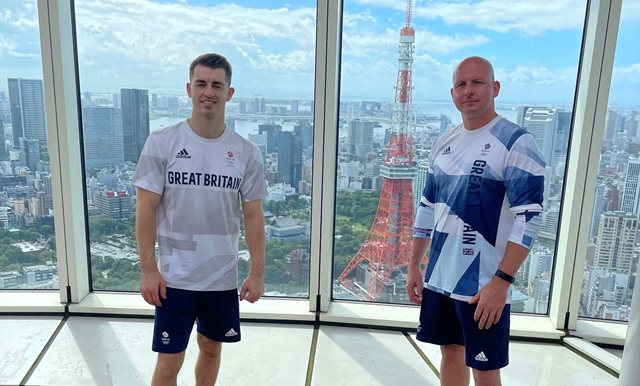
Included in this article:
- Children should follow their passions not their parents
- Every child should feel heard, understood, and valued
- Connection before correction
- How to motivate children
- Skills for successful mentoring
- Building legacies that last a lifetime
- Values and principles of great coaching
- Download FREE Resource: Child-first coaching top tips
by Blake Richardson
Gymnasts spend an unusually high proportion of the early part of their lives upside down. So, in homage to those dedicated young acrobats who are the central feature of this article, it seems only appropriate to perform a literary somersault and flip the storyline on its head.
To help us determine the recipe for a successful relationship between an aspiring gymnast (or any athlete for that matter) and their coach, let us start at the end of their journey together, not the beginning, as we look at what child-first coaching disciple Scott Hann has achieved with generations of gymnasts.
For Scott, success is counted not in the number of medals earned but in the number of lifelong friendships forged, cherished memories created, life skills developed, and lives positively transformed.
It speaks volumes then that Scott had the honour of being best man at two of his gymnasts’ weddings – David Mott and Brinn Bevan – and is godparent to one of the children of another of his protégés, Matt Jackson – who is now Assistant Director of Coaching at South Essex.
This is testament to the longevity of his influence and firm evidence that Scott’s approach to coaching is founded on holistic, child-centric principles that enable his gymnasts to achieve their full potential through prioritising personal growth, happiness, well-being, and the pursuit of life goals.
Whichever sport you coach, these combined factors ensure athletes become the best versions of themselves, guided by the golden principle that if you develop the person, the performer will follow.
Children's passion vs parental pressure
Gymnasts can begin competing in regional and county competitions from as young as seven and progress to national competitions from around the age of 10 or 11.
Child welfare at such a young age, when gymnasts can encounter regular periods of pressure and intensity, is of critical importance, demanding close supervision from coaches and parents, who must ensure special attention is given to the opinions and feelings of the child.
To protect children’s physical health and psychological well-being, the focus must be on long-term welfare over short-term outcomes.
It is pivotal therefore that gymnasts on the performance pathway enjoy the sport and are there because they want to learn and develop.
They should not be there to please their parents or, worse still, feel pigeonholed as a ‘gymnast’ at such an early age by parents living vicariously through their children.
What you are trying to develop through adopting a child-first philosophy is a robust, independent, happy athlete through holistic development,” says Scott, “so that when they reach their early teens, into adulthood, they are able to make their own independent choices and drive their own programmes forward with the support of the coaching team and the people around them.”
Those holistic building blocks must be introduced from a very young age and, according to Scott, that includes establishing from the outset:
- that a child wants to be there
- that their wishes and feelings are being listened to
- that they have control over what they do
“All too often in the past – with lots of sports, not just gymnastics – the children are there because their parents have pushed them into that area. And once they are in that environment, because they are physically talented, sometimes coaches prioritise that physical aspect without really understanding what the child wants.
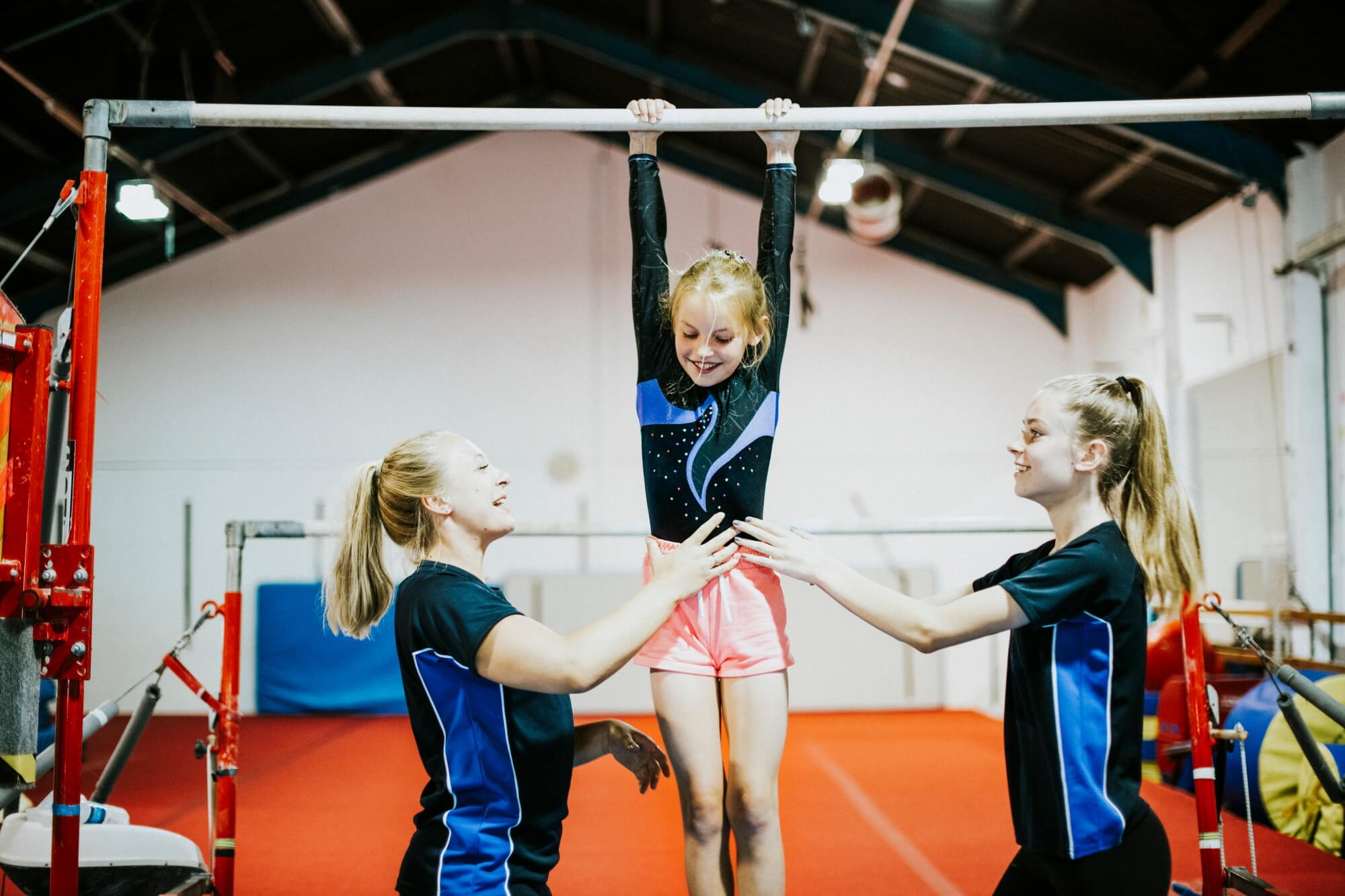
“That doesn’t mean to say people are doing that purposely to harm that child, or affect their training potential, but they are not realising that they are setting up a journey for that child without getting their buy-in.”
Every child should feel heard, understood, and valued
It is important to keep listening to the child’s voice through the many transitions that characterise their journey through sport.
In demanding high-performance settings, the motivations, desires, and dreams of children fluctuate and can change over short periods of time.
As Scott says, the difficulty in coaching children is that one day a child may give consent, another day they may just want to mess about with their friends.
Education for both coaches and parents is absolutely essential to make sure you are tuned into the wishes and choices of the child.
“Any materials you can give the parents, any interactions you can have with them – including presentations – can be hugely effective.”
Scott works with the organisation Working with Parents in Sport, who have a comprehensive bank of tools and resources around how to engage effectively with parents and bring them on the journey.
Ultimately the child has to have a voice from the very start,” adds Scott. “So, if they don’t like something, it is vital they feel comfortable articulating that they don’t want that to happen.
“That may mean that the child is limited to how far they can go in the sport, but that communication and that child’s voice is essential because you then understand where that level is, and you don’t end up pushing a child into an area where they don’t want to be.”
Remember: Connection before correction
High performance environments are filled with like-minded, single-minded, steely-focused athletes vying to be the best.
A young gymnast may love the sport and love competing but, as the saying goes, the course of true love never did run smooth.
It is inevitable when you have a group of athletes who are continually striving for improvement through incremental gains, and where they are under pressure to reach maximum peak performance during competition days, that even the strongest coach-athlete relationship can encounter difficulties and be tested.
But there are ways to mitigate disputes and turn such challenges into positive learning experiences.
Coaches must invest time and energy to form connections with their athletes. Trust cannot be demanded; it must be earned and is rooted in gaining a deep understanding of what makes every individual in your group tick.
Talking – and being sure to listen – to gymnasts in performance settings is vital, as it fosters a sense of belonging and helps to establish a safe and proactive space – a climate of psychological safety – where gymnasts feel comfortable sharing their anxieties and points of view without fear of criticism.
The maxim ‘connect before you correct’ is solid advice for all coaches, irrespective of which rung your athlete is at on the performance ladder. As Scott explains:
That mutual trust doesn’t come overnight. It takes several years to build that trust and respect and form strong personal connections that enable you to understand what that child needs and then align yourself with those needs, and really help them to grow.
“So, when you get to that intense level of preparing for a competition, because you’ve been on that journey together, the gymnast or athlete will not need to be told what to do to reach peak performance, they will know exactly what they need to do.
“Sometimes as a coach, it is a case of advising them to step off the gas a little and maybe have a bit of fun.
“It might be a hard session and you see the child has become introverted. That’s the point when you need to ask, ‘how do you feel today?’ and ‘tell me what it is you want to do?’ and give them a few choices so that they feel empowered as part of the process.”
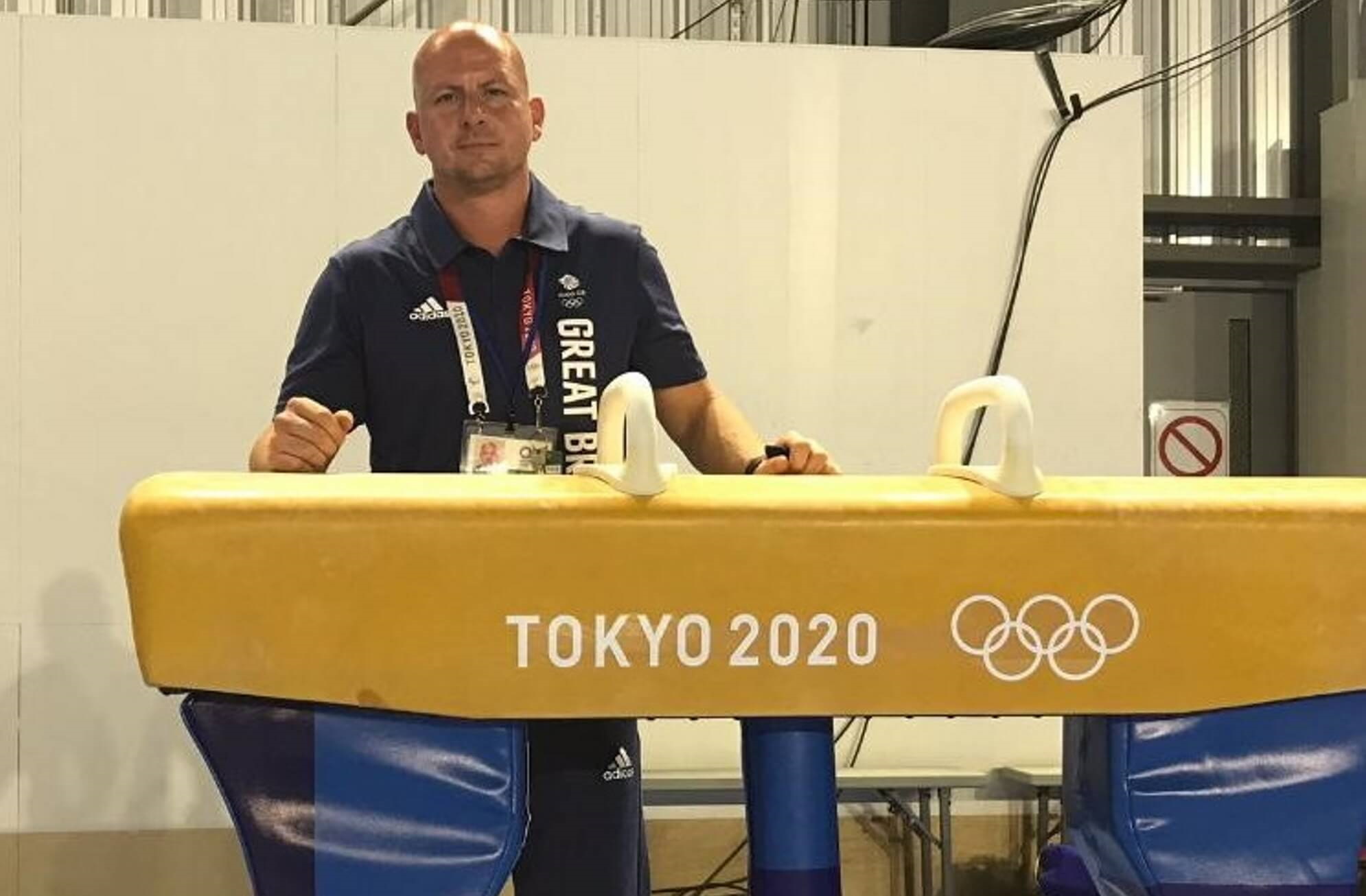
How to motivate children to stay motivated
Scott says confidence and motivation hold the key to ensuring that children stay engaged with the learning process – further minimising the risk of fall-outs and helping to keep boredom at bay.
Making sessions challenging but enjoyable fuels gymnasts’ motivation, so that repetitive drills – a necessary part of gymnastics – don’t become a drain on enthusiasm.
“Rather than say to a gymnast, ‘you need to do this, and you need to do it again and again and again’, the key lies in setting up a series of small challenges for the gymnast,” says Scott.
“It’s those small achievable goals in that challenge that motivates them. And if a child is motivated, they will work hard and do those repetitions without becoming bored.
“Every time a small target is achieved, they gain confidence, and that fires their motivation. Once you have a confident, motivated child, you almost don’t have to convince them to do the repetitions because, ultimately, they’ll want to achieve the skill that they have set out to perfect.”
Scott encourages children and young people to actively seek out challenges to move forwards, because it is in those moments of adversity that people learn most.
“So, when they next encounter a similar challenge, they have the tools in their toolbox to deal with it.
When things are absolutely brilliant, it feels good, but you don’t learn much!”
If you do spot a child that arrives at a session lacking motivation, Scott’s advice is to use positive reinforcement to encourage them.
“Don’t dictate to a child that they need to do it again – but better. That is when it becomes negative.”
Let us suppose the goal is to want a child to run faster. Which option would you opt for as a coach? Do you tell them:
A. We want you to run faster, so we are going to do these running drills.
Or might you offer them a choice?
B. Do you want to race against a friend, and we will time you? Maybe we could do some fun games to challenge you, or if you want, I could run with you?
Scott adds: “Because you have created a fun environment, and they have had a choice in what that environment and challenge looks like, they will run faster and push themselves harder. Basically, you will have a more motivated, independent athlete.”
Skills for successful mentoring
South Essex Gymnastics Club has approximately 100 coaches, around 30 of whom are high performance coaches.
As Director of Coaching, Scott operates a top-down style of organisational communication, whereby the club’s values, ethical standards, and other salient information flows from senior coaches on down through the club.
“I will mentor my most senior coaches and they will mentor the next level down, so that the messaging is consistent throughout. It is impossible for me to get around 20, 30 coaches,” explains Scott.
“All our coaches are inspirational, driven, and passionate but some may occasionally become frustrated by a gymnast who has perhaps gone off track and isn’t working as they would like.
High-end mentoring allows for inexperienced coaches to be given that emotional intelligence to really understand the bigger picture. That’s when me and the senior coaches will give them advice on how they might adapt to such challenges by thinking about the impact of their coaching on the child or on their gymnastics.
“Even at the highest level, coaches can let their emotions take over what they are trying to deliver, which is why it is so important to find good mentors, and surround yourself with good people, to help keep you in check and encourage you to self-reflect.”
5 Tips for Child-First Coaching
Don't drop the ball! Download our free tools, tips and games and grow your coaching practice – like these 5 top tips which support children to Play Their Way.
FREE TIPS
We are family! Building legacies that last a lifetime
Let us end where we began, with some glowing testimony of what real success looks like for performance athletes who have benefited from child-first coaching methods.
Georgia Mae-Fenton struck gold on the uneven bars and in the team event for England at the 2022 Commonwealth Games in Birmingham.
After some challenging years, Georgia says she knew within weeks of arriving at South Essex that she had found a club that genuinely cares and that lived their values of putting the needs of the gymnast first.
“My new coach Michelle Flemings wants the best of me in all aspects of life and I can really sense that feeling. I’ve put a lot of trust in her and this is just the start for me.”
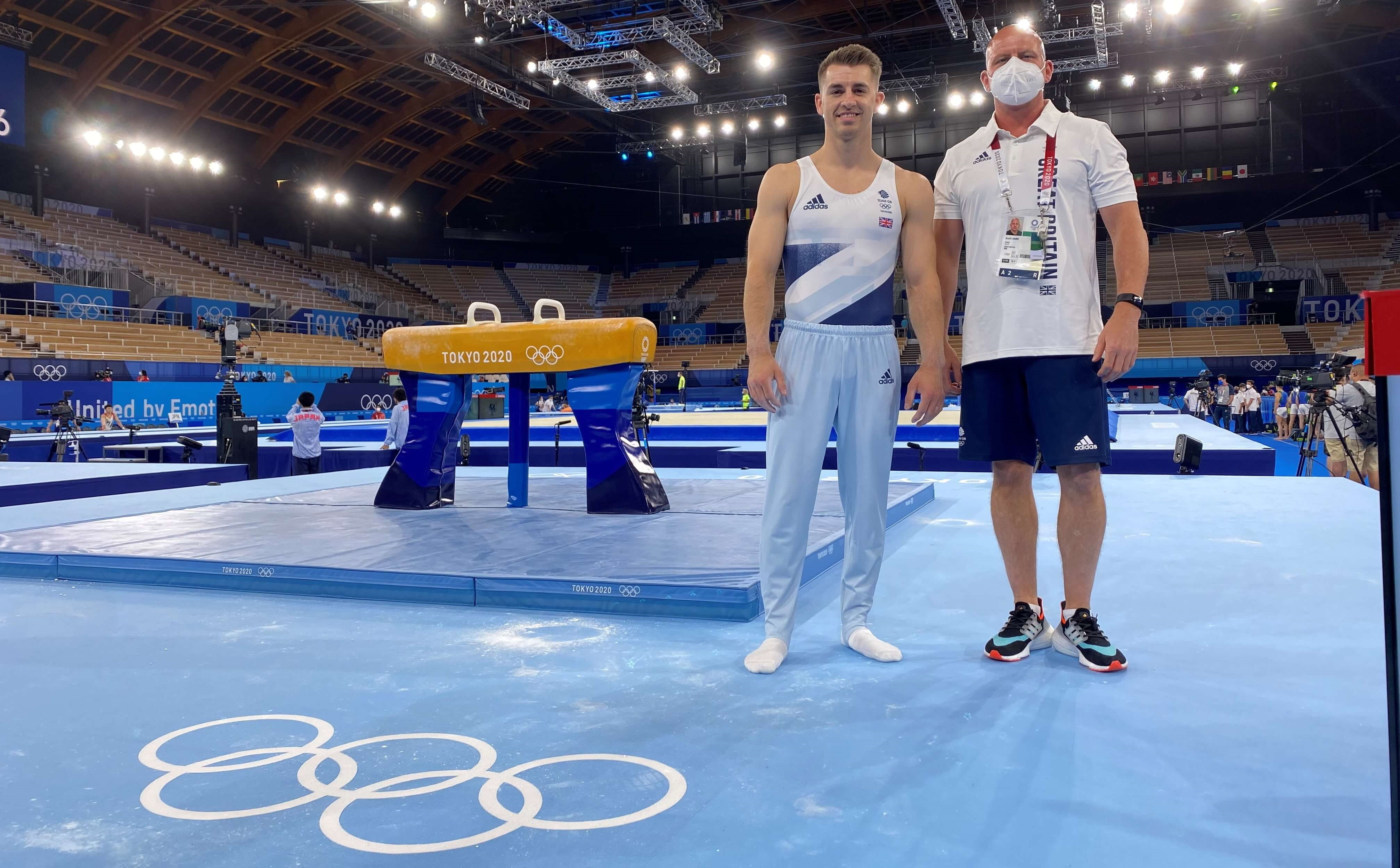
Let us end where we began, with some glowing testimony of what real success looks like for performance athletes who have benefited from child-first coaching methods.
Georgia Mae-Fenton struck gold on the uneven bars and in the team event for England at the 2022 Commonwealth Games in Birmingham.
After some challenging years, Georgia says she knew within weeks of arriving at South Essex that she had found a club that genuinely cares and that lived their values of putting the needs of the gymnast first.
“My new coach Michelle Flemings wants the best of me in all aspects of life and I can really sense that feeling. I’ve put a lot of trust in her and this is just the start for me.”
Praising the influence Scott has had on his career, triple Olympic champion Max Whitlock – the most successful British gymnast of all time – says: “It’s not just a coach-gymnast relationship I have with Scott. We’re family. He has that level of care for me. It’s not purely about results.
“The impact really shows, and not just from our elite side but all the way down to the two- and three-year-olds that join the club every single day. Everyone owes a massive thank you to Scott, especially me.”
The values and principles of great coaching
Scott says he is “immensely proud” of the family atmosphere he has created, and the profound benefits that have resulted from adopting a child-first approach that is now deeply ingrained into the soul of the club.
“As with all families, you have differences of opinion, but you work through those, and by supporting each other and being there for each other, you come out stronger for the experience. It is through disputes and through disagreements that you often find new ways of doing things and discover bits of gold dust.
“It is also important to make sure there is a separation between personal and professional situations during gymnasts’ development because what you don’t want to do is get caught up with things that could influence your decision-making in the gym. I wouldn’t advise that type of friendship until your athletes are fully-fledged seniors, because you have to have those boundaries and that distance.
But, of course, it is nice to hear how much you mean to an athlete, and more importantly how much of a positive impact you have had on their lives. It’s really important to take that responsibility seriously.
“Looking back 15 years, would I ever have predicted that Max would end up being my brother-in-law [his wife’s sister is married to Max], that I would be best man at two of my gymnasts’ weddings and godparent to another’s children? Absolutely not.
“It is something that just happened organically, and it does make me immensely proud to know that I have succeeded in establishing the values and principles that I believe define great coaching.”
Other resources you may like...
About the contributors
Scott Hann is a Director of Coaching at South Essex Gymnastics Club.
SHARE THE MOVEMENT
Help spread the word by sharing this website with fellow coaches!

